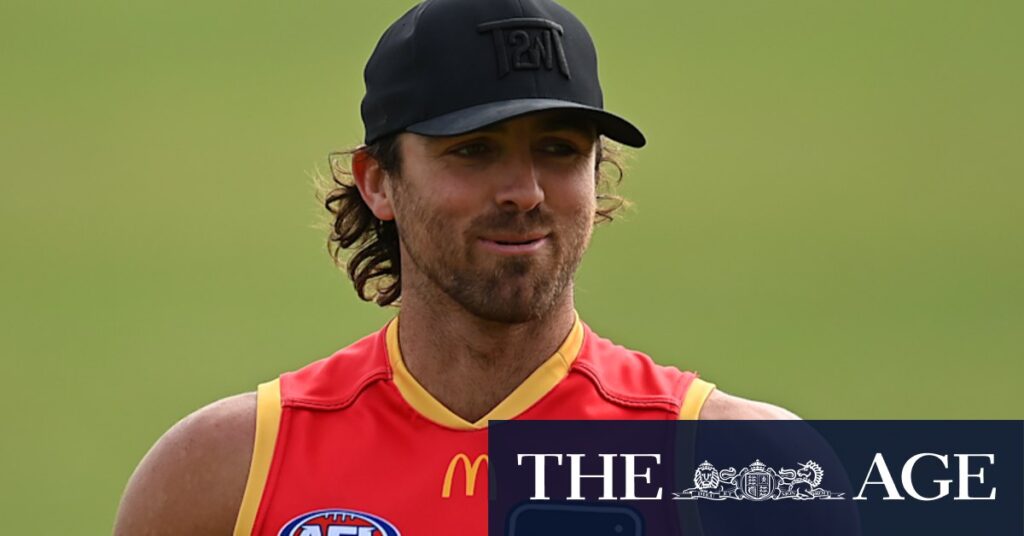
Former Brisbane Lions player Rhys Mathieson has been handed a three-year ban for breaching the Australian football anti-doping code. The decision, set to be announced by the AFL and Sport Integrity Australia (SIA), follows a positive test for a banned substance in 2024. Mathieson’s suspension was reduced from the maximum four years due to his admission of fault and delays in the case.
Mathieson, who played 72 senior games for the Brisbane Lions before being delisted at the end of 2023, tested positive while playing for the Wilston Grange Gorillas in the Queensland state league. He has been under provisional suspension since late 2024, following the breach of the doping code.
Background and Case Details
Despite no longer being an AFL player, Mathieson remained subject to the anti-doping code applicable to all levels of Australian football. His case was managed by the AFL and SIA, formerly known as ASADA. Sources reveal that Mathieson tested positive for a performance-enhancing substance during the latter part of 2024 while competing in the QAFL.
Mathieson chose not to contest the case at either the AFL Anti-Doping Tribunal or the National Sports Tribunal, which athletes may use to mount a defense. A source with direct knowledge of the case explained that Mathieson’s sentence was reduced from four to three years due to his cooperation and the backdating of his suspension to reflect the case’s duration since August 2024.
Players found to have used performance-enhancing drugs can receive bans of up to four years, but they may reduce that sanction if they cooperate.
Impact on Mathieson’s Career
Mathieson played 16 games for Wilston Grange in 2024, including a final, and was among the competition’s top performers, averaging over 30 disposals per game. Under provisional suspension, he has not played in 2025, which restricts participation in other sports.
Local leagues, such as the state leagues, adhere to the same anti-doping regulations as the AFL. Unlike Melbourne’s Joel Smith, whose breach involved cocaine on a match day, Mathieson’s violation was for a substance banned both in and out of competition.
Reactions and Analysis
Mathieson, originally drafted from the Geelong Falcons, spent eight years with the Lions, earning the nickname “the barometer” for his influence on team performance. Despite not making the Lions’ grand final team in 2023, he was part of a successful squad that won back-to-back championships in 2024 and 2025.
His physical transformation into a more muscular athlete was noted online, with Mathieson sharing images of his build on social media. He also co-hosts a podcast with former teammate Mitch Robinson, where they discuss various topics, including mental health challenges faced by athletes.
This publication reached out to Mathieson for comment but received no response. The AFL Players’ Association, representing Mathieson legally, also declined to comment.
Broader Context of Anti-Doping in AFL
Recent AFL anti-doping cases have primarily involved illicit substances, such as cocaine, considered performance-enhancing only on game days. Positive tests for substances banned in all scenarios, like human growth hormone and anabolic steroids, are rare in the AFL.
Collingwood’s Josh Thomas and Lachie Keeffe received two-year bans in 2015 after testing positive for Clenbuterol, admitting the substance likely entered their systems via illicit drugs.
Melbourne’s Joel Smith was part of a lengthy SIA investigation and received a four-year and three-month ban for a match-day cocaine positive in August 2023, alongside additional violations such as trafficking.
Looking Ahead
Mathieson’s case underscores the ongoing challenges of maintaining integrity in sports through strict anti-doping measures. As the AFL and SIA continue to enforce these regulations, the focus remains on deterring future violations and upholding fair competition standards.
With Mathieson’s suspension set to conclude in 2027, the implications for his future in sports remain uncertain. The case highlights the importance of vigilance and adherence to anti-doping protocols across all levels of competition.






